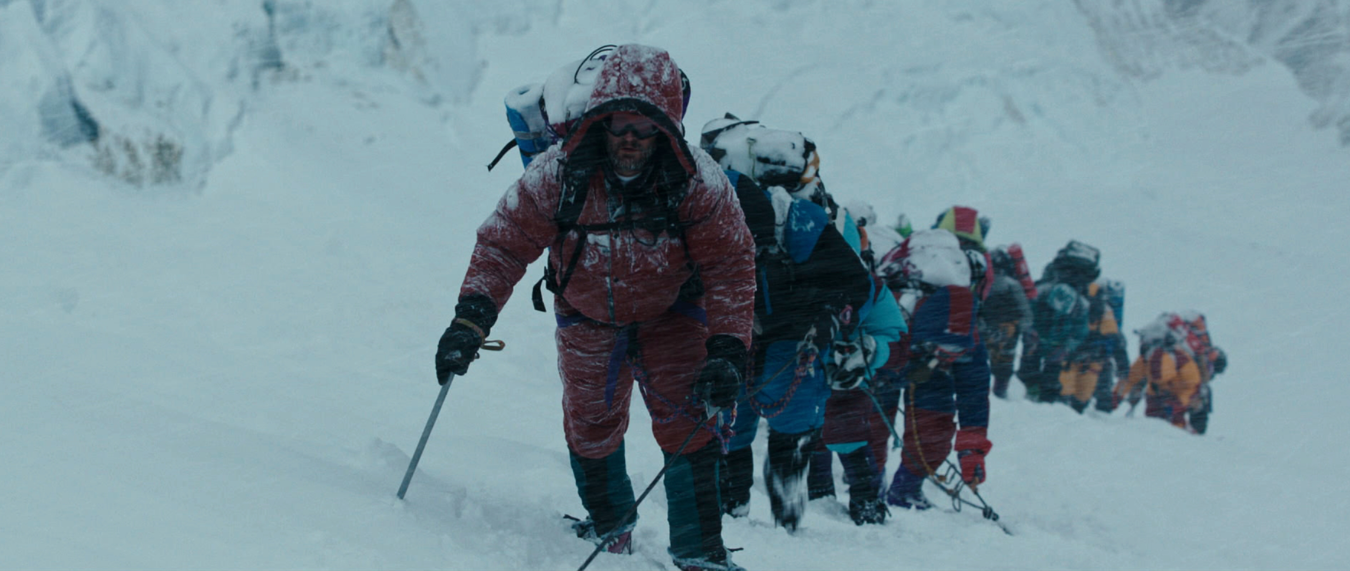
In 1993, I watched a harrowing nerve-wracking film called Alive, about the plane crash of a Uruguayan rugby team in the Andes mountain range and how they managed to survive. Through no fault of their own, the passengers were plunged into hell merely traveling from point A to point B. Fast-forward to 2000 and I’m watching The Perfect Storm, about a fishing crew, desperate for money, who decides to sail through a confluence of storms in order to get back to shore and sell their catch before it spoils, allowing them to feed their families. Their decision was definitely risky, but one can understand the desperation to provide for one’s family, which would drive anyone to behave in a foolhardy manner. Fast-forward a little later into the Aughts and I’ve got 127 Hours (young man trekking by himself in dangerous canyons and loses an arm), Into The Wild (young man decides to live in the wilderness and dies from consuming poisonous berries) and Grizzly Man (couple decides to live amongst grizzly bears. I don’t need to tell you how that ends). I assume I speak for most people when I say that part of the enjoyment, thrill, suspense of seeing a movie is the fact that we as the audience identify with the protagonist, or the hero (or the anti-hero in some cases). When we see the hero on screen, we enjoy thinking subconsciously, well, he or she is doing exactly what I would do in that situation! I suspect with the typical horror movie, seeing the hero do the exact opposite of what we would do provides the fun. With that in mind, Everest is the greatest horror movie ever made.
Of course, I’m being facetious. Everest is not a horror film. It’s a survival thriller which begs to be viewed in IMAX. However, I make mention of all those other movies to make the following point: with each progressive movie, I found it more difficult to identify with the main character or characters because they were doing things throughout the course of the film that made no sense to me. This made it hard for me to identify with the main characters whatsoever. As these characters are based on real people, I say respectfully that I found it difficult to feel any type of sympathy for people who voluntarily put themselves in harm’s way. So you can imagine how difficult it was to comprehend any of the characters’ decisions to climb to an altitude of 32,000 feet, which, as they point out in the film, is the cruising altitude of a 747 and where your body is literally dying.
Jason Clark plays Rob Hall, a guide for Adventure Consultants, one of a group of climbers. At the beginning of the film, we see him departing from his pregnant wife (!) to begin his trek. When my wife was pregnant, I wasn’t allowed to leave the house to go see a movie such as this, let alone scale Everest. Clark, who is hit or miss with me–liked him in Dawn Of The Planet Of The Apes, disliked him in Terminator Genisys–is a hit with me in this film. Putting aside the fact that he leaves his pregnant wife behind to engage in an activity that could kill him, I was rooting for him. It would’ve been interesting to see how Christian Bale, who was originally cast in the role, would’ve played it, but Clark’s Hall is a nice guy, a natural leader whom you want to succeed. John Hawkes plays mailman Doug Hanson, who provides the most inspirational motivation for attempting the climb: to prove to his kids and all of their schoolmates that an ordinary man is capable of doing the extraordinary. Okay, I can sympathize with that. Does that mean I can make the leap to understanding why he’s climbing Mount Everest? Weeell…
Besides not being able to identify with characters, I wasn’t sure if some of them were being ostentatiously set up as foils or villains to provide conflict, as if the mountain itself weren’t conflict enough. There’s Beck Weathers (Josh Brolin) the Texan who barks that Hall better get him up the mountain safely, given how much money he spent for the climb (is he the rich jerk who will eventually put everyone at risk for his own safety?), rival team climber Scott Fischer (Jake Gyllenhaal) who spars with Hall about whose team should delay their ascent given there are too many climbers at the same time (will he sabotage Hall so his team can go make the ascent first?), Anatoli Boukreev (Ingvar Eggert Sigurðsson), the team leader who doesn’t believe in using supplemental oxygen (will his ego be the downfall of the expedition?), Helen Wilton (Emily Watson) the base camp manager who notes that they can’t afford another climbing season with no one having made it to the top (is she just in it for the money?) All this leaves me with just Hall and Hanson, two people for which I have a modicum of sympathy, and then nearly everyone else, whose motives are in question.
Using my logic, this film was a total bust for me, right? Wrong. Not since 2013’s Gravity has IMAX been more splendidly immersive. The cinematography is subtle but dazzling and dizzying. Even before the teams make it to the Everest basecamp, they arrive in Nepal and cinematographer Salvatore Totino puts you right in the midst of the clamor. I felt as though I had been plunked down in the middle of Kathmandu. Once the film reaches the mountain, it’s stomach churning. Walking across rope bridges (is that where they shot the scene from Indiana Jones and the Temple of Doom?), climbing across chasms on flimsy Home Depot ladders, walking along steep dropoffs at vertigo-inducing altitudes; I felt like I was freezing and swooning simultaneously. If I haven’t made the point, you must view this film in IMAX. Ultimately, the locale is the star of the film. The Val Senales, Alps, the actual Everett basecamp, the backlot of Cinecitta Studios in Rome and Pinewood Studios in the UK served as stand-ins for Mount Everest and the photography is seamless. I found myself engrossed in the technical aspects of the climb and the steps the crew takes to each new settlement as they ascend. I actually found myself buying into this expedition during these scenes. Then they come across a frozen corpse…and they keep going forward, which put me back into questioning their sanity. It also didn’t help that the inevitable tragic events surprisingly come off as anticlimactic. There’s a scene with two isolated climbers that evokes emotion, one of the few in the film, but the denouement is not given enough gravity (no pun intended) to make me feel sufficiently moved. I admit I’m a sucker for tearjerkers and it’s not hard to get my waterworks going. It says something that I never had an issue with that during this film.
So I don’t know if I’ve been fair with this review, if my common sense which balks at the notion of doing something as crazy as climbing 32,000 feet has made it impossible for me to be objective. I recommend seeing Everest for the vicarious thrill of experiencing a damn good replication of climbing to the peak. But the actual narrative and most of the characters can’t compete with the mountain itself.






Add comment